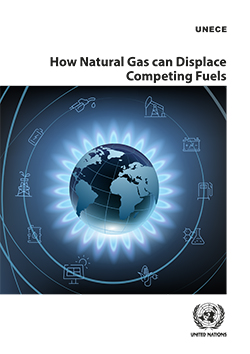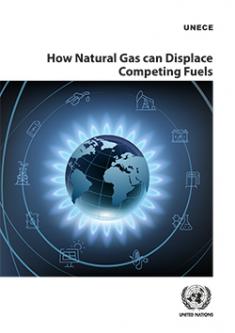 How Natural Gas can Displace Competing Fuels
How Natural Gas can Displace Competing Fuels(Geneva, 2019)
If there is to be a significant role for gas as a transition fuel, let alone as a destination fuel, governments and international institutions in the UNECE region will have to develop strategies that encourage the use of gas in the near- and medium-term while providing for a subsequent orderly transition towards a vastly increased use of renewables.
Overall, renewables can be expected to provide low-cost electricity in much of the UNECE region and will be the prime beneficiary of the phasing out of coal by individual UNECE member States. Renewables will be favoured both by investors seeking to profit from the market and by governments and politicians seeking to benefit from the provision of low-cost energy to the public whilst limiting the burden on public finances.
There will continue to be significant geographical differences. Gas demand in the European Union is expected to contract significantly in the next 20 years but gas will remain the dominant energy source for domestic supply in Russia and Central Asia.
Modelling carried out for UNECE shows that a policy stance based on a Pathway to 2°C results in a radically different energy mix to a ‘business as usual’ scenario. In particular, it challenges the conventional wisdom that gas is needed as a transition fuel to decarbonize the economy. More powerful arguments for the use of gas are its role in the provision of both energy security and quality of life.
Decarbonization and energy sustainability remain key objectives in the current energy transition. But they are not identical and it is far from clear how efforts to achieve decarbonization and to secure energy sustainability will affect each other.


